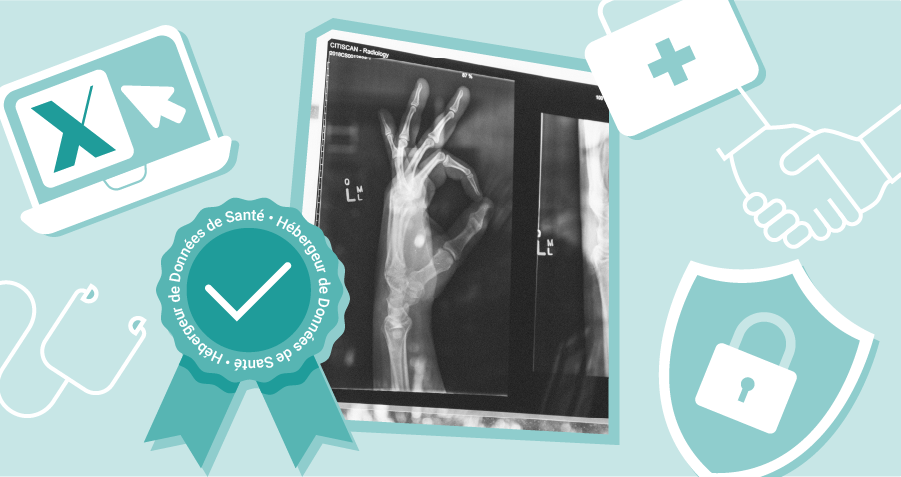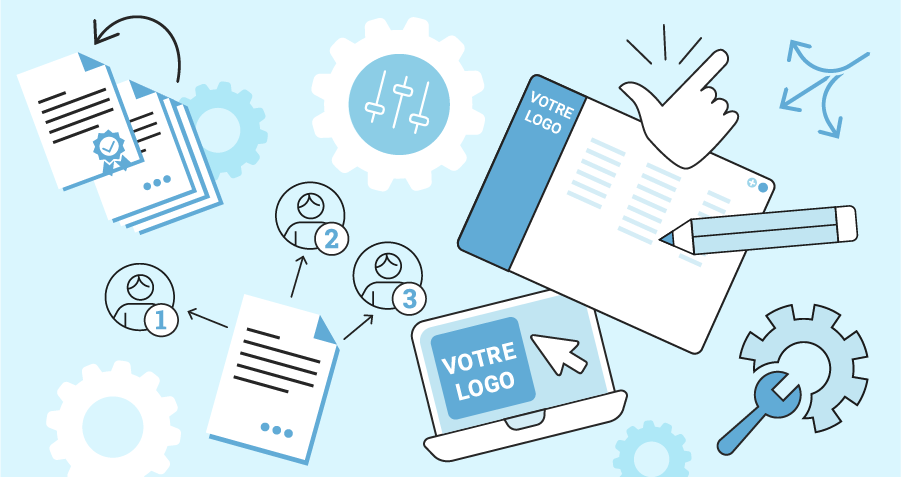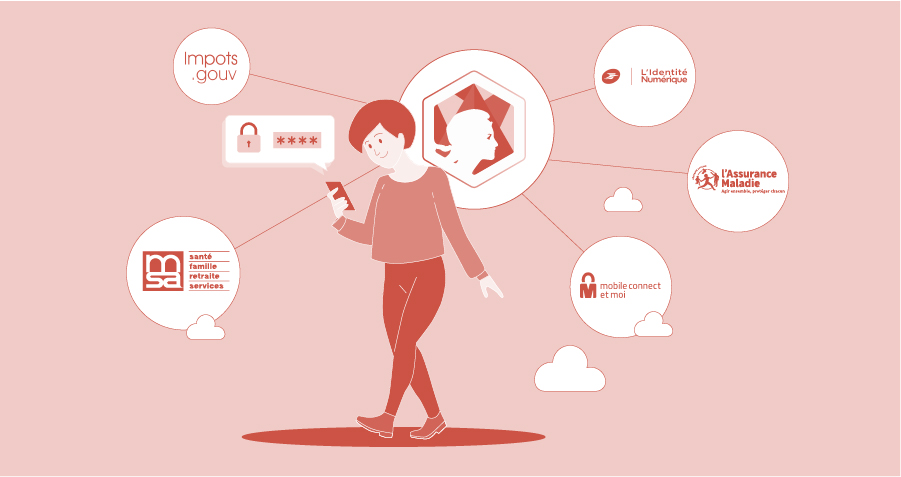Share on :
Lex Persona, a specialist in electronic signature solutions, has been certified as a Health Data Host (HDS), reinforcing the protection of the personal health data it hosts.
With this certification, Lex Persona intends to integrate the electronic signature into standard medical practice.
Why should hospitals, doctors and laboratories remain on the sidelines of this technology, when they are all invited to digitize in order to have real-time patient information, facilitate access to care and simplify their internal management.
What is HDS certification?
HDS certification is awarded to structures or organizations that host sensitive healthcare data, by an accredited independent body.
Security conditions adapted to the criticality of data
There is considerable mistrust of Cloud and SaaS solutions among healthcare professionals. The main stumbling block is the security of personal health data.
However, HDS(Healthcare Data Hosting) certification provides a structuring response to this issue. Based on standards including ISO27001 and ISO 20000, it guarantees a trustworthy environment for e-health and patient monitoring. It culminates in the award of certification by an accredited independent body to any structure or organization hosting healthcare data.
And all public or private organizations that host, operate the healthcare IS, or carry out backups on behalf of a healthcare establishment or third-party healthcare provider, must be HDS-certified. Lex Persona, already ISO 27001 certified, obtained HDS certification in October 2023.
We anticipate strong growth in electronic signatures in the healthcare sector," says François Devoret, founder and CEO of the French company.
The healthcare sector is still in the early days of electronic signatures, as is the education sector, which is also looking for security. security and sovereignty. This certification is therefore a major investment for us. Especially as we are covered for all 6 certification activities.
Our entire electronic signature platform platform meets HDS certification criteria, thehardware infrastructure and the software solution ".
The importance of digitalization in the medical sector
The healthcare sector is one of the most heavily regulated and most demanding in terms of security. Which makes sense, after all, since the data processed is confidential and covered by medical secrecy. A genuine obligation of professional discretion, medical confidentiality represents a fundamental right for patients. It is one of the pillars of medical practice.
"There can beno care without confidentiality, no confidentiality without trust, no trust without secrecy " , emphasized Bernard Hoerni, Professor of Oncology at the University of Bordeaux II, in his book " Ethique et déontologie médicale ".
HDS certification ensures security conditions adapted to the criticality of data, offering patients and healthcare professionals greater confidence.
The challenges of digital transformation
The healthcare sector is also changing, with the arrival of Mon Espace Santé. But also with the reform of the GHT (Groupement Hospitalier de Territoire). This requires establishments to digitize and find a new way of operating.
The pandemic has accelerated this digitalization, raised awareness of needs and highlighted the sector's vulnerabilities. The sector is one of the most targeted by cybercriminals. The point of entry is often the user. This period has highlighted the need for secure, effective solutions.
Numerous hospitals have been hit and paralyzed by cyberattacks. These include AP-HP in 2020, Dax, Oloron-Sainte-Marie, Villefranche-sur-Saône, Saint-Gaudens and Arles in 2021, GHT Cœur Grand-Est, CHU Corbeil-Essonnes, Centre Hospitalier de Versailles, CHU Nice in 2022, and most recently CHU Brest, which was still operating in degraded mode several days after the attack.
Electronic signatures in the healthcare sector
Simplified identification and collaboration
In addition to electronic signatures, Lex Persona offers healthcare establishments a collaborative signature work book. This offers the possibility of opening a discussion thread alongside the document to be signed. This can be used to integrate questions, comments, suggestions and so on.
These exchanges are possible between professionals or between the medical profession and the patient. Under no circumstances can the document be modified.
What's more, Lex Persona technology is compatible with the various professional smart cards (CPS - Carte de Professionnel de Santé -, CPE - Carte de Personnel en Etablissement-, etc.) used in this sector.
"As these are assimilated to a digital identityThey can therefore be used by professionals to identify themselves easily and securely on our electronic signature platform ," adds François Devoret.
Towards digital sobriety
The use of electronic signatures also enables healthcare establishments to adopt a more virtuous approach in terms of digital sobriety. Today, too many paper documents are digitized and transformed into bulky PDF files that clog up messaging systems and servers.
Then there are all the documents sent by e-mail as attachments, which have to be printed, signed, scanned and e-mailed again. This type of exchange is cumbersome to manage in the back office, consumes a lot of bandwidth and is a real ecological waste.
With the electronic signature, everything is lighter: no need to print or scan, and thecarbon footprint is reduced.
Numerous use cases to address
Although the world of healthcare is tending towards digitalization, for the time being, it still relies heavily on paper documents. In the absence ofelectronic signature toolmany natively digital documents are printed out for manual signature. They are then digitized and reintegrated into business software packages.
These include medical reports, liaison sheets, test results, administrative documents, registration forms, notification forms and patient consent forms. There are many possible uses for an electronic signature management system.
The case of patient consent
The patient consent form is a real issue for hospitals. It is generally a PDF document to be downloaded and printed. It must be completed and signed by the patient on the day of admission, and returned to the ward nurse.
The process would undoubtedly be simpler and more efficient if it were fully digitized. This implies the use of an electronic signature solution and the implementation of a validation circuit. All the more so as a copy of the consent must be kept in the patient's medical file, which is moving towards complete dematerialization. The French Public Health Code sets the retention period for medical records for healthcare establishments at 20 years (unless the patient is deceased).
Conclusion
Lex Persona's HDS certification marks an important step towards securing and modernizing healthcare data management processes. Healthcare establishments can now benefit from an electronic signature solution that complies with the most stringent standards, while improving their operational efficiency and patient experience.
Finally, Lex Persona is referenced by various buying groups:
- UGAP, dedicated to local authorities;
- CAIH, for hospital staff ;
- RESAH, for the healthcare sector.
👉 Find out more about our solutions and discover how we can support your business.
👉 S ee all our certifications.
The electronic signature, an essential tool for digitalizing the healthcare sector







